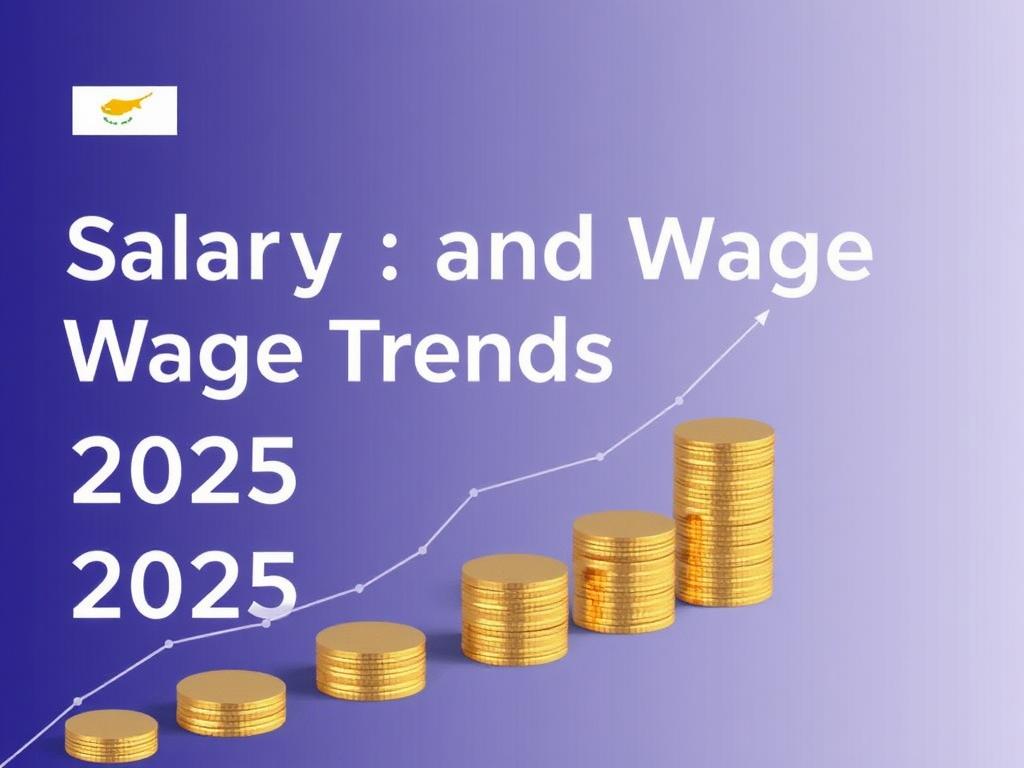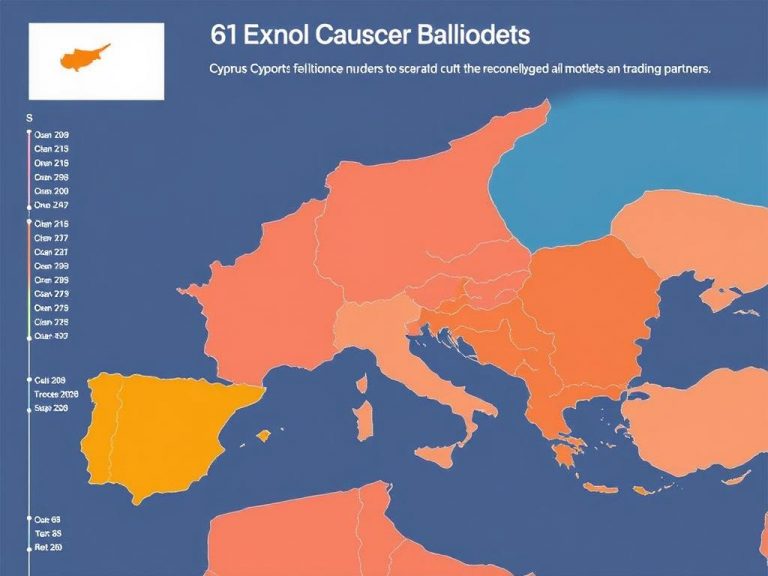Salary and Wage Trends in Cyprus: 2025 Compensation Guide
Cyprus has long been a prominent player in the Mediterranean labor market, boasting a unique blend of industries that shape its economic landscape. In recent years, understanding salary trends Cyprus has become essential for both employers and employees aiming to navigate the evolving compensation landscape. This comprehensive guide explores the nuances of wage growth Cyprus is experiencing, and what income levels Cyprus workers can expect in 2025. Providing a data-driven overview, this article will offer insights into minimum wage Cyprus policies, sector-specific compensation Cyprus trends, and factors influencing salary adjustments.
Overview of Cyprus Labor Market Dynamics
The labor market in Cyprus has undergone substantial changes over the last decade. Traditionally reliant on tourism, shipping, and financial services, the island’s economy now incorporates growing technology, energy, and professional services sectors. This diversification directly impacts salary trends Cyprus is currently witnessing. The workforce is becoming more specialized, with demand for skilled professionals contributing to modern compensation adjustments.
One of the critical elements shaping wage growth Cyprus is the government’s policy on minimum wage Cyprus. The minimum wage, which had been a focal point for enhancing living standards, guides employers in setting salary floors. As the cost of living rises, the minimum wage Cyprus has been periodically adjusted to maintain purchasing power and reduce income inequality.
Cyprus’ labor market is evolving with increased specialization, driving new compensation benchmarks in 2025.
Overall income levels Cyprus are influenced by several factors, including inflation rates, sectoral growth, labor productivity, and international economic conditions. The interplay of these influences presents a complex picture of compensation Cyprus workers can anticipate.
Minimum Wage Cyprus: Setting the Baseline
The minimum wage Cyprus serves as the fundamental benchmark underpinning salary structures across various industries. In recent years, the government and social partners have negotiated increases to the minimum wage, reflecting rising living costs and economic shifts. As of 2024, the minimum wage Cyprus was set at a rate intended to support low-income workers without imposing excessive burdens on small and medium businesses.
For 2025, projections indicate a further adjusted minimum wage Cyprus that balances fiscal sustainability with workers’ rights. This adjustment aims to ensure that minimum wage earners maintain adequate income levels amid ongoing inflationary pressures and changing economic conditions.
It is important to highlight that the minimum wage Cyprus does not apply uniformly across all sectors and categories. It primarily covers unskilled and semi-skilled labor segments, while skilled professionals and managerial roles typically fall outside its purview, operating instead within negotiated compensation frameworks.
Minimum wage Cyprus adjustments aim to preserve workers’ purchasing power while sustaining business viability.
| Year | Minimum Wage (Gross Monthly) | Percentage Increase |
|---|---|---|
| 2022 | 870 EUR | 5% |
| 2023 | 910 EUR | 4.6% |
| 2024 | 950 EUR | 4.4% |
| Projected 2025 | 990 EUR | 4.2% |
Sector-Specific Salary Trends Cyprus: Which Industries Lead?
Salary trends Cyprus are not uniform across the board; instead, they vary significantly by sector. The island’s key sectors—financial services, tourism, shipping, and the growing tech industry—offer different compensation patterns shaped by demand, skill sets, and labor supply. In 2025, these sectors are expected to continue showing divergent compensation trajectories.
The financial services sector remains one of the highest-paying industries, largely due to the expertise required and the economic value generated. Professionals in banking, investment, and insurance enjoy some of the highest income levels Cyprus has to offer, with wage growth Cyprus in this sector typically outpacing the national average.
Tourism, another crucial sector, continues to employ a large swathe of the workforce. However, salary trends Cyprus show that this sector tends to have lower than average compensation and slower wage growth Cyprus, reflecting its seasonal and often transient nature. Nevertheless, skilled roles in hospitality management and tourism technology are gaining ground and commanding increased wages.
The technology sector is rapidly changing compensation Cyprus dynamics as well. With the rise of startups and international firms establishing bases in Cyprus, demand for IT specialists, software developers, and engineers has surged. This growth has caused a notable uptick in wage growth Cyprus within the tech domain.
Sectoral differences in wage growth Cyprus highlight the island’s shifting economic priorities in 2025.
Factors Driving Wage Growth Cyprus in 2025
Several macroeconomic and microeconomic factors contribute to wage growth Cyprus will see in 2025. Among the most significant are inflation rates, labor productivity, and evolving labor market regulations. Inflation directly affects real wages: as costs increase, salaries must rise accordingly to maintain living standards.
Labor productivity improvements also drive compensation Cyprus increases. When workers produce more value per hour, employers are incentivized to raise wages to retain top talent and improve morale. In Cyprus, automation and digitization in various sectors are gradually enhancing productivity, supporting wage growth Cyprus in certain industries.
Another important driver is the regulatory environment, including changes in taxation, social security contributions, and labor laws. Government policies aimed at promoting fair wages and reducing inequality contribute to wage growth Cyprus but must be balanced against business competitiveness.
International economic factors cannot be overlooked. Cyprus’s economy is interconnected with the European Union and global markets. Regional economic health, foreign direct investment, and tourism flows play roles in shaping compensation Cyprus workers receive.
Income Levels Cyprus: What Workers Can Expect in 2025
Income levels Cyprus for 2025 are projected to reflect continuing moderate growth, with variations by region and profession. Urban centers such as Nicosia and Limassol typically report higher salary figures due to concentration of higher-paying industries and cost of living differentials.
Overall, average gross monthly salaries in Cyprus have gradually increased, with estimates for 2025 suggesting an average range between 1,800 and 2,200 EUR, depending on sector and experience. Middle management and senior technical roles typically command salaries well beyond this average.
However, disparities persist between various demographic groups and skill levels. Entry-level workers and those in low-skilled positions generally earn closer to minimum wage Cyprus levels, while highly educated professionals enjoy considerably higher incomes. Bridging this gap remains a policy challenge.
Income levels Cyprus vary widely, reflecting regional, sectoral, and skill-based differences as of 2025.
Compensation Cyprus: Trends in Benefits and Non-Wage Perks
Compensation Cyprus extends beyond basic salary, incorporating benefits and perks that have become increasingly crucial for attracting and retaining talent. In 2025, employers in Cyprus are emphasizing comprehensive compensation packages that include health insurance, performance bonuses, pension contributions, and flexible working arrangements.
These non-wage benefits are often used to compensate for slower wage growth Cyprus in some industries, providing additional value to employees without directly increasing fixed salary costs. For example, technology companies may offer stock options or remote work options, while financial firms emphasize robust retirement benefits.
Moreover, the recent rise in awareness about work-life balance and employee well-being has encouraged more Cypriot firms to adopt wellness programs and mental health support as part of overall compensation Cyprus trends.
Future Outlook: Preparing for Salary and Wage Shifts Beyond 2025
Looking beyond 2025, the salary and wage trends Cyprus will continue to evolve under the influence of technological innovation, globalization, and demographic changes. Automation and artificial intelligence are expected to reshape the job market, displacing some roles while creating demand for new skills. Therefore, continuous professional development will be vital for workers to maintain competitiveness and benefit from wage growth Cyprus offers.
Additionally, Cyprus’s strategic position within the EU will likely encourage further investment, especially in sustainable energy and fintech sectors. These developments could spur new compensation Cyprus models emphasizing performance incentives and global talent attraction.
Policy responses will be key to balancing wage growth Cyprus with labor market flexibility. Ensuring social protection while fostering innovation will determine overall income levels Cyprus achieve in the longer term.
The future of compensation Cyprus hinges on technological adaptation and regulatory balance to sustain wage growth.
Unlocking the Full Picture of Cyprus Compensation: What It Means for Workers and Employers
Understanding salary trends Cyprus and the factors influencing wage growth Cyprus is crucial in 2025 to make informed decisions for both employees and employers. The rising minimum wage Cyprus provides a necessary floor, but actual incomes will continue to depend heavily on industry, skills, and geographic location.
For employees, staying aware of these dynamics can guide career planning, education, and negotiation strategies. For employers, a clear comprehension of compensation Cyprus benchmarks ensures competitiveness and talent retention in an increasingly complex global market.
Ultimately, Cyprus’s evolving compensation landscape reflects broader socioeconomic changes and offers opportunities for those willing to adapt. Whether it’s leveraging new skills in emerging sectors or advocating for fair wages, stakeholders involved in the labor market must remain vigilant and proactive.
Effective engagement with Cyprus’s 2025 compensation trends empowers both workers and businesses to thrive.
Frequently Asked Questions
- What is the current minimum wage Cyprus for 2025?
The projected minimum wage Cyprus for 2025 is approximately 990 EUR gross per month, reflecting a gradual annual increase aligned with inflation and economic factors. - Which sectors in Cyprus offer the highest salaries?
Financial services and technology sectors typically offer the highest salaries due to the specialized skills and economic value they generate. - How does wage growth Cyprus compare to inflation?
Wage growth Cyprus aims to keep pace with or slightly exceed inflation to ensure that real income levels do not decline, though this varies by sector. - Are non-wage benefits important in compensation Cyprus?
Yes, benefits such as health insurance, bonuses, and flexible working conditions form an essential part of compensation Cyprus strategies, especially in competitive industries. - What should employees do to improve their income levels Cyprus?
Employees should focus on developing in-demand skills, pursuing continuous education, and targeting high-growth sectors to achieve better income levels Cyprus. - Are income disparities significant in Cyprus?
Yes, disparities exist across regions, sectors, and skill levels, with urban centers and skilled professions earning substantially more than low-skilled and rural counterparts. - How will technology affect salary trends Cyprus in the future?
Technology is expected to increase demand for high-skilled labor, potentially raising wages in tech-driven sectors while automating routine jobs, which may suppress wages in other areas.







